Annika Victoria is an Australian YouTuber with over 730,000 subscribers, lover of sewing and thrifting, and the absolute babe behind the #BabeWithAMobilityAid hashtag that you may have seen on social media.
This interview is part of a new series that I’m starting here on my blog, where I speak to some of my favourite disabled creators and entrepreneurs about their work, and how they make it work.
I think it’s important to talk about the ways in which disability and chronic illness can impact how we work – and my aim for this series is to share experiences, tips, and just in general learn about the different ways people are able to navigate all of that. It’s something I think I would have benefited from a lot when I was younger, so I hope it can help others today!
Hi Annika! Can you tell me a little bit about yourself?
Hey! I am in my late 20s and I live in Sydney, Australia. I live with my wonderful partner and my very spoilt, scruffy rescue dog, Ella.
Why did you decide to start your own YouTube channel?
I love sewing and I love learning. I was documenting my progress in learning how to sew on a blog I had back in the day called “The Pineneedle Collective”. Some people asked if I could make videos of my photo-tutorials to make it easier to see what I was doing.
I had always liked working with video as a creative medium; as a child, I’d force my siblings to co-star alongside me in homemade productions. So I started making videos of the weird clothing I put together, explaining step-by-step how I made them, and they just sort of took off!
I never meant for it to become my career, but after a couple of years of doing it I realized that it would make a great career for someone with an unpredictable chronic illness. It allows me a lot of flexibility and I can work/take breaks as needed, which I could never imagine being able to do in a 9-5 where I worked for somebody else. I really love it ☺
Can you tell me a little about your chronic illness and how it impacts how you work?
The chronic illnesses I live with, that impact me the most, are Takayasu’s Arteritis – which is an autoimmune vasculitis, and is also the condition that I take the most medicines for! I also live with Fibromyalgia, anxiety and depression. Basically, I am in pain 100% of the time and often very fatigued!
Living with a chronic illness has definitely been frustrating when my career was “taking off”, as it felt like I couldn’t put myself 100% in and say yes to every exciting opportunity that was suddenly coming my way. But looking back, perhaps my limited energy has helped me to be more discerning about which opportunities I should take, and that’s not a bad thing!
My illnesses definitely make it difficult to attend conferences or functions that run all day, so I have to say “no” a lot to opportunities to connect with other people in my field of work, which has led to quite a lot of isolation.
Do you have anything specifically set up to help you balance your health with your work?
For a long time I didn’t, and I had to go through quite a few cycles of boom-and-bust to figure out what works for me.
Now, I have set hours for work, that allow me to be productive but not overdo it, and enforced weekends (I’m very bad at stopping working, or taking time off, hence the word “enforced”).
I also have finally found an excellent physiotherapist (about the 7th or 8th I had to go to), who has set me on a really great rehabilitation course to get some functionality back to my body, which has allowed me to extend the time I can sit and work at my sewing machine or my computer.
How do you balance deadlines and expectations from your subscribers and brands you work with when you’re not feeling too great?
It’s really hard! Just today I had to tell a brand that I couldn’t meet the deadline for the month, and they weren’t happy. And often subscribers get really unhappy with me when I don’t post for a while or post a more low-energy video, because that’s all I can manage at the time.
I just have to remind myself that it’s not my fault, and repeat a phrase that’s almost become a mantra: The people who mind don’t matter, and the people who matter don’t mind.
Mostly, the people who watch my videos are incredibly supportive and understanding when I can’t release videos for a while, and brands are on the whole okay about it as well.
The few people who become negative stick can really stick out, especially when you’re already in a vulnerable state, but I’m getting better and better at not paying those negative types of people attention.
Do you have plans in place for unexpected flare ups?
Hmmm. Nope. Hahaha. I should. I really, really should. Because I get VERY angry and upset when flare ups happen, and often place blame on myself or something that I’ve did that “caused” it.
I do practice trying to be kinder to myself when I am having low-energy or high-pain days, but I need to keep learning how to use those skills for extended bad-periods like flare ups! I’m definitely still learning how to be chronically ill!
What has been the biggest challenge of running a YouTube channel whilst chronically ill?
Trying not to compare myself to other people who do similar videos. It is hard to feel like I am an equal to other Youtubers who put out 2-3 tutorials a week, when at the moment I can manage about 1 per month.
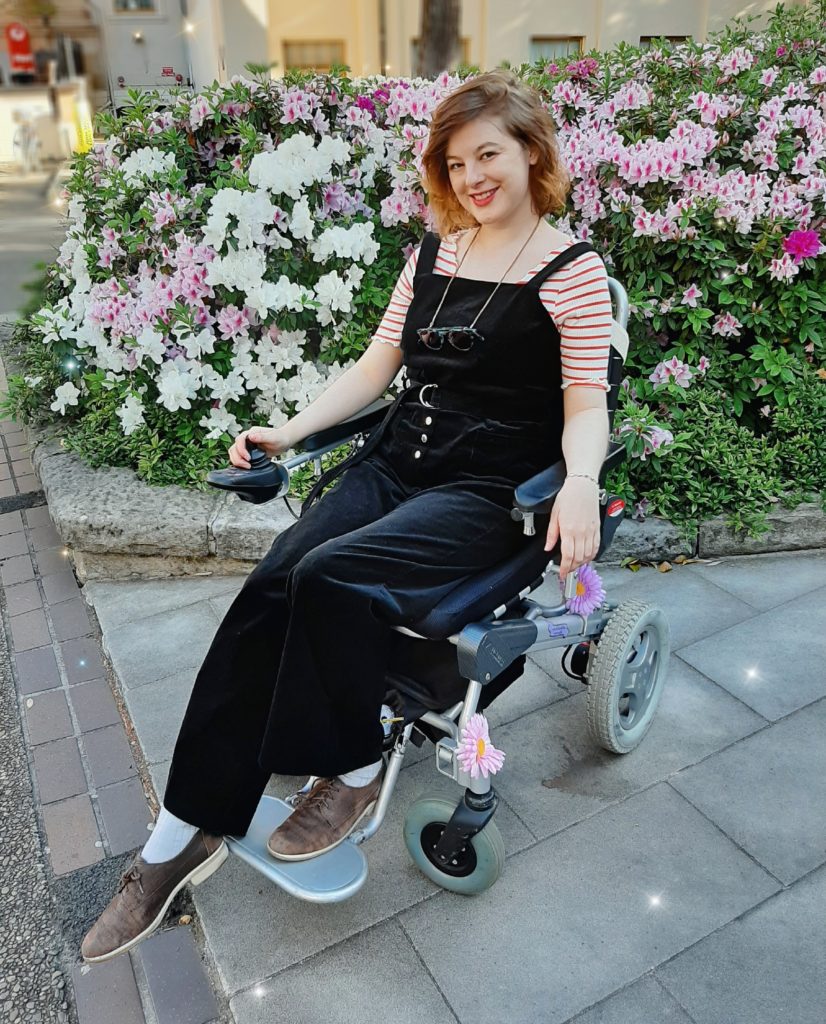
And on a more positive note, what’s your favourite thing about having a YouTube channel?
The community it’s brought me. I have made so many friends online who are now real-life friends and are some of my favourite people – before making my channel I didn’t know anybody else who liked sewing, or anybody else who had a chronic illness. Now I have a lot of friends, online and off, who share those interests and just “get” me! It’s been very important to me to find my people!
You’re very visible on a public platform as someone with chronic illness. Do you face discrimination from people online who don’t understand this? How do you cope with this?
I feel like I’ve been pretty lucky and most people, even if it’s something they’ve not encountered before, are pretty understanding (or say nothing)!
I do get the odd remark like “what’s wrong with you”, “why are you using a wheelchair”, but on the whole the support I got after “coming out” as chronically ill and being more visibly disabled has been overwhelmingly positive.
Do you feel you have received much support as Creator with chronic illness? If not, what would have been helpful for you?
No, not from Youtube themselves, but I have received a tonne of support from the community of people who watch my videos, and I’m incredibly grateful for that!
In my experience, even though I work exclusively online, offline still matters: showing up to events, meeting people, etc. Is this something that you’ve found too – and if so, is this accessible for you, and do you feel as though this impacts on your ability to take up opportunities in the same way healthier people may be able to?
I think I’ve taken up less than 5% of events and meetings that I’ve been invited to!
This is mainly due to a huge lack of accessibility and also due to the events always running at ridiculous times – either all day with no space/areas/time to rest, or starting very early in the mornings!
It’s also impacted by my ability to get to the events – Sydney is a very car-focused city and I can’t drive due to my illnesses, and the events are often impossible to reach via accessible public transportation.
What advice would you give to someone with a chronic illness who is looking to start their own YouTube channel?
- It can be harder than it looks, so don’t beat yourself up if you try it and hate it or can’t do it.
- You can film videos while laying down with an overhead tripod.
- Don’t start by comparing yourself to other people!
- The parrot teleprompter is a godsend if you have difficulties with memory!
- Make sure you’re making videos about something that you’re really passionate about – it’ll get you through the stress and fatigue that sometimes comes along with it!
- DO IT! It’s such a wonderful place to find a sense of community with like-minded people.
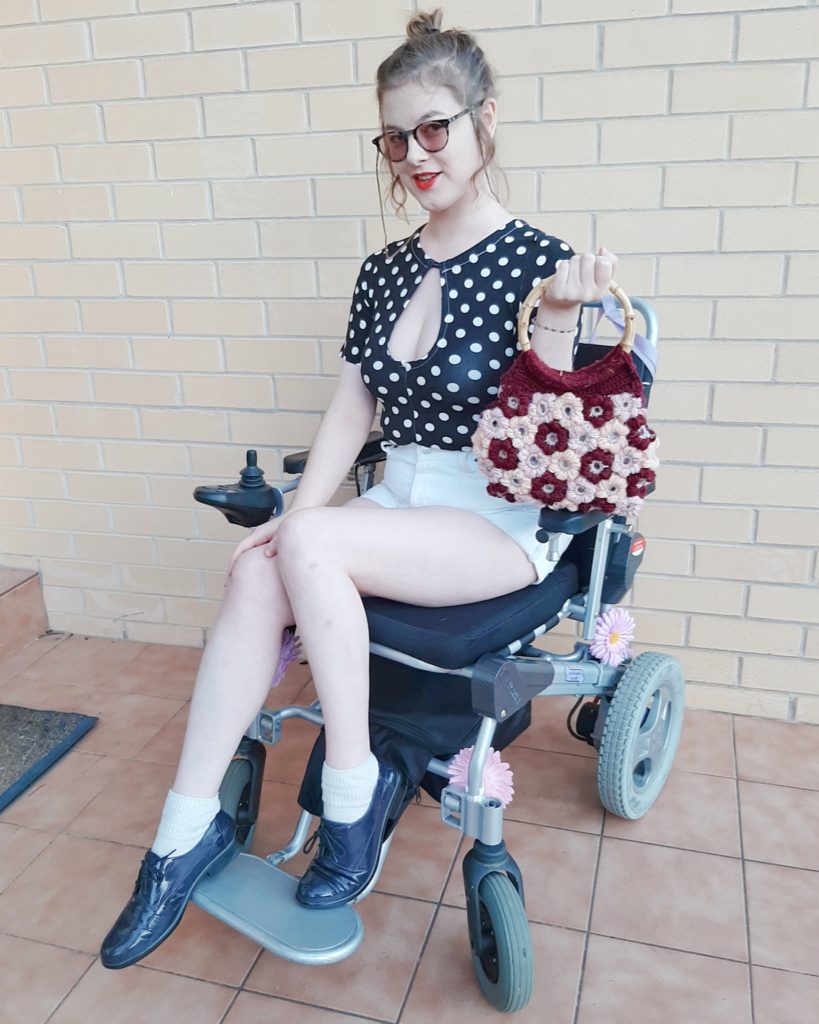
You’re also the founder of one of my favourite hashtags #BabeWithAMobilityAid! Why did you decide to start this?
A few years ago, I realized that every time I turned up somewhere I needed to be – University, parties, birthdays, even just doing the shopping – I would be completely worn out that I’d not be able to focus on what I needed to do, and then go home and spend the rest of the day sleeping and feeling rotten.
After about a year of this I realized I shouldn’t need to suffer and that mobility aids exist! However, my first foray into the world of mobility aids was less than positive.
The first store I visited were very dismissive of me because I “looked” young, fit and healthy, and basically refused to help me (I mean, if you don’t want my money? Sure! I’ll go elsewhere).
Luckily, the second place I visited were much more accommodating and understanding that people of all ages might have mobility problems! I was really nervous to start using one because of the negative experiences I had with that first store, and because of a few people in my life telling me I shouldn’t use a mobility aid – including my doctors! All this negativity made me feel like I was the problem, and that I was somehow not allowed to use a mobility aid.
But I knew other people like me must be out there – I just needed to find them. So I started #BabeWithAMobilityAid – I liked how it sounded, and I also wanted something fairly gender-neutral like “babe”, so other people all over the world could also use it too!
#BabeWithAMobilityAid was such a huge motivator to get me to actually use my mobility aid on days when I really needed it but was feeling really anxious about other people making negative comments about it.
I would go to Instagram and scroll through that hashtag to see other kickass disabled and chronically ill babes living their lives with the help of an aid. It’s been so, so helpful for me, and it’s been such a joy to see other people use it to empower themselves as well, and ask for the aids/accomodations that they need!
How do you you balance your job and your life whilst also looking after your health? Are you able to switch off?
I am getting better at this! I never was able to switch off but lately I’ve been all about making my work more sustainable for myself. Instead of setting the goal to release a video every week, or every second week, like I used to do, I now have a loose goal of a video per month and if I don’t reach that, I don’t get angry at myself like I used to.
I have a set amount of time that I can work and am not allowed to work after that (pacing skills for the win!). I don’t always get it right, but I have a much better work/life balance now than I ever had.
What are your top time management tips?
- Pacing! Set a time limit for your work that is just a little bit less than you could achieve on an average day (for me that’s currently 2 hours and 15 minutes). Then divide that up into “chunks” – I do three 45-minute chunks per day.
- Allow yourself to have weekends!
- Don’t compare yourself to other people, especially people who aren’t chronically ill, who work 9-5 jobs. You’re still a valid, valuable human being even if you can’t produce as much as other people.
What can we expect to see from you in the future?
I want to keep doing videos about sewing into the foreseeable future. And keep working on disability advocacy and activism, as it has brought me a lot of purpose!
I am also really keen on doing a Master’s degree at some point in the future in the field of critical disability studies. I’ve had a taster of it in my Undergraduate degree, and can really see myself working in that area in the future!
I want to say a huge thank you to Annika for taking the time to answer my questions! If you’ve not checked her out on YouTube, you can find her channel here. You can also follow her on Instagram @littlepineneedle!
I’m really excited about this series, and I hope you are too. If you’d like to support me and my work (aka help prevent over-reliance on Instagram and its bloody algorithm), all I ask is that you subscribe to my newsletter.

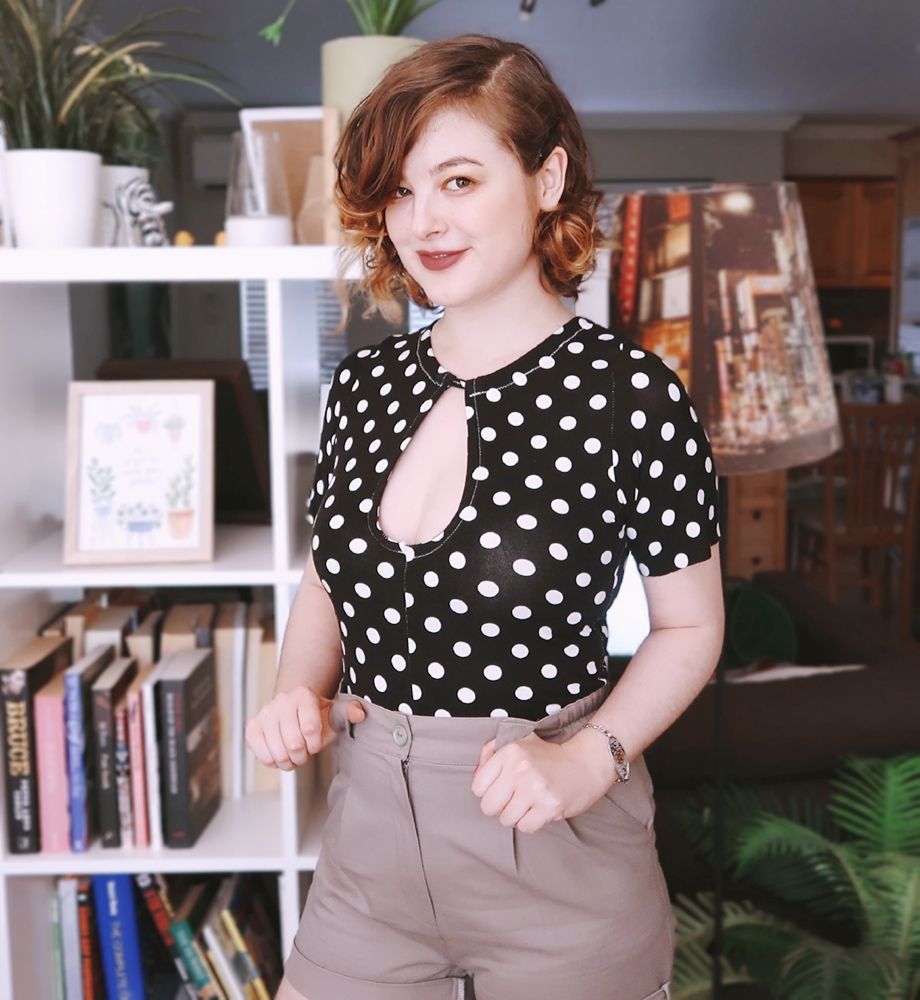
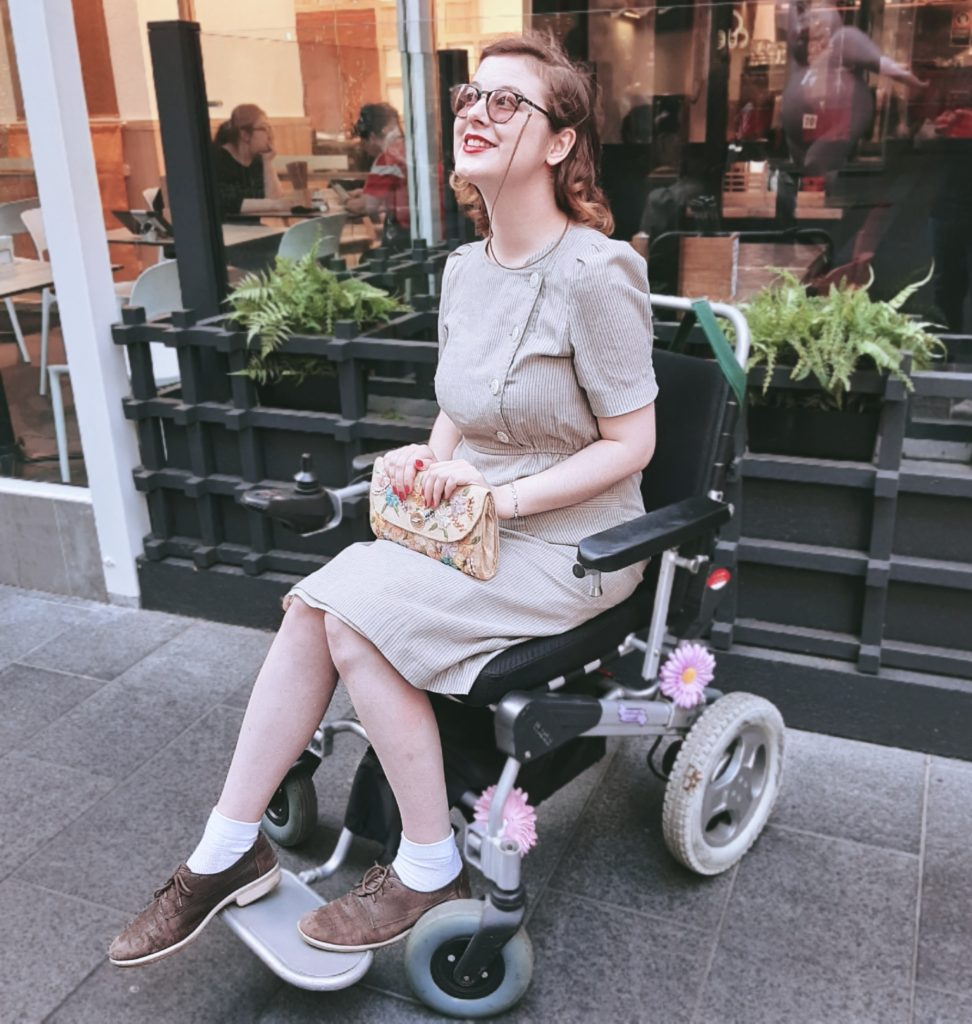
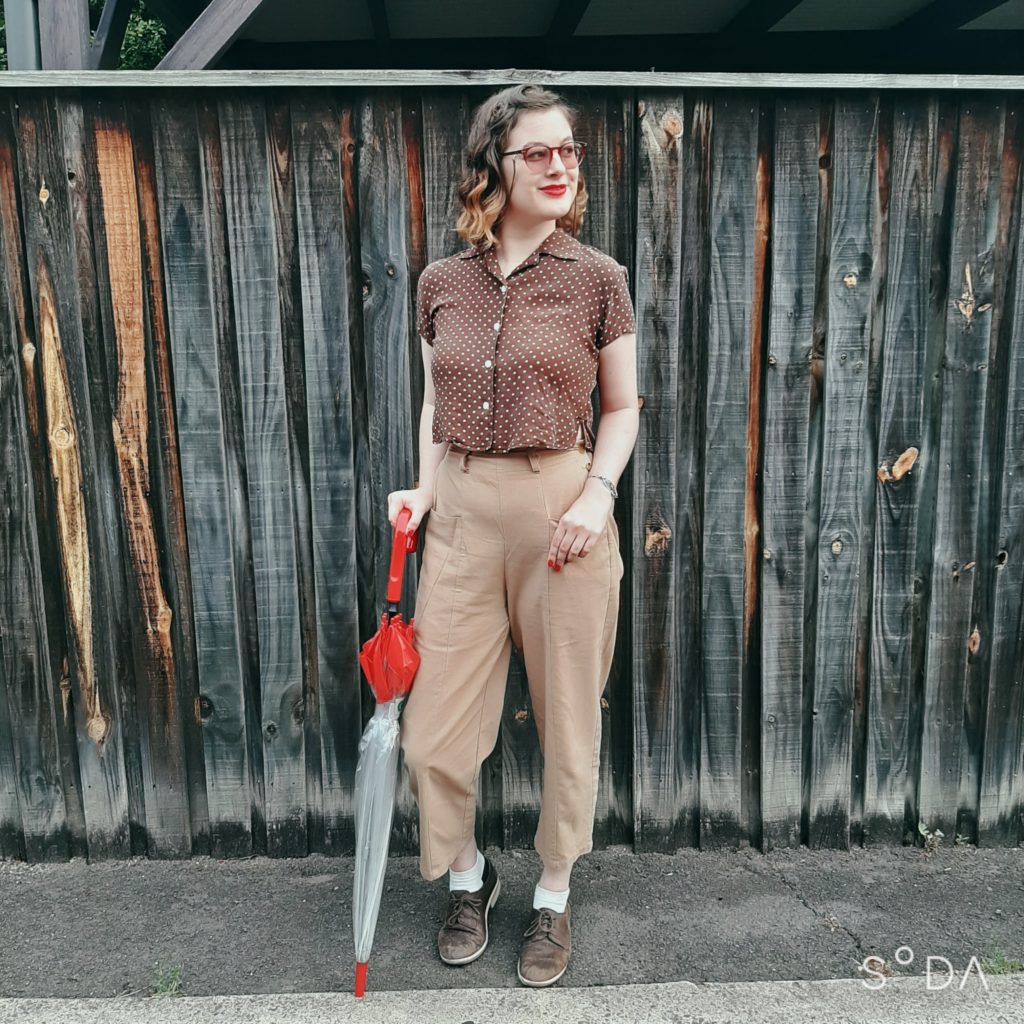
Aaaaah! So very nice to see two of the people I watch and follow have networked their way together! Thanks for sharing a sweet interview.
Aww this makes me really happy – thank you Ellaina! Yay for e-networking, eh? 😉
Awesome read, thanks for putting this out there! I think it’s always hard to set boundaries for yourself and decide whether you’re “making excuses” for not doing something when you could push yourself instead. I’m grateful for people like Annika standing up and saying “this is what I need” and being a role model for trusting yourself to know what’s best for you 🙂
Thank you, Lizzy! I loved her answers. I’m so glad you enjoyed the post.
I am glad that Annika is doing well for herself and has a YouTube channel and is doing sewing as a career. Annika is absolutely right that you should not let anybody hold you back because one has a disability. People with disabilities should be treated like everybody else meaning like an equal.